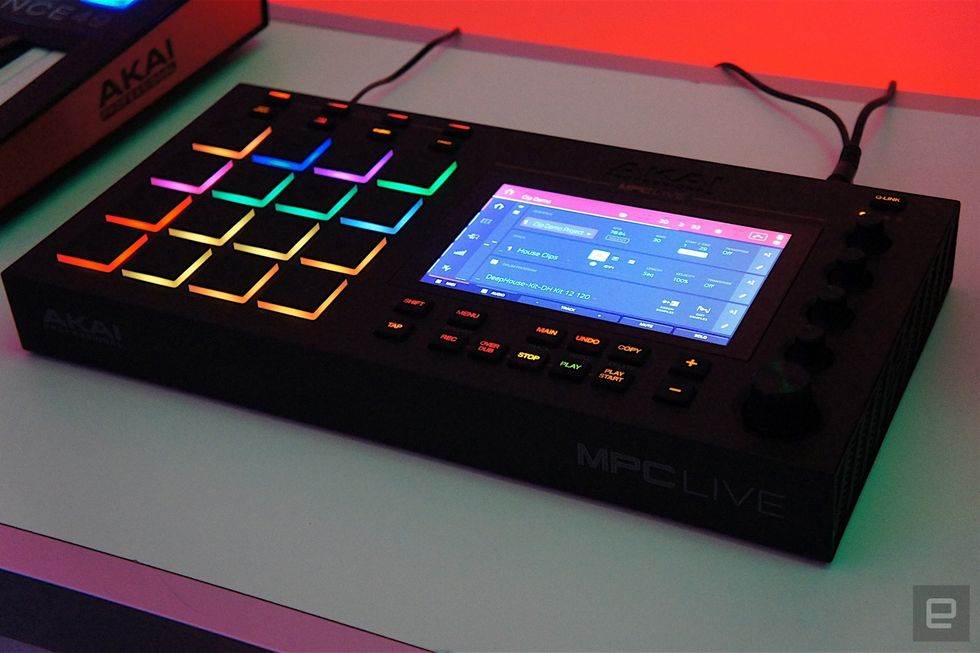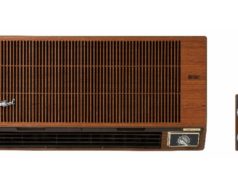The impact of Akai’s MPC series on hip-hop cannot be overstated. The first model — the MPC60 — hit the market in the late 80s, perfectly timed with hip-hop’s culture of borrowing and reinventing classic beats and melodies. The MPC’s iconic pad-based design and relatively accessible price opened up music production to a whole new audience.
Akai has released a new MPC every couple of years ever since, but somewhere along the way, the franchise drifted from it’s “all in the box” roots, instead becoming tethered to a laptop, or watered down to reach more casual users. The latest two models — the MPC Live and the MPC X — see the the iconic instrument return to its standalone roots, but with some very modern twists.
The MPC Live is the smaller, more accessible of the two new samplers. The trademark pad-grid is here, with multi-colored LED’s for visual feedback. On the right hand side is a seven-inch touchscreen where you can browse, edit and arrange your sounds. Aesthetically, the MPC Live looks almost identical to last year’s MPC Touch, but looks can be deceiving.
Gallery: Akai MPC Live and MPC X | 15 Photos

-

-

-

-
 +11
+11
The key difference with the Live is that is has 16GB onboard storage for samples. If this isn’t enough, you can expand storage further with a 2.5-inch SATA SSD/HDD. Most importantly, you no longer need to connect it to a PC/Mac and use the Live with the MPC desktop software, though you can if you want. The MPC Live also has a built-in battery, making this a truly portable, standalone music production center (the C, in MPC, previously stood for “controller”).
If you’re less worried about making music on the go, or just have more free desk space and cash, the MPC X is a more fully-featured take on the MPC. The core features are very similar — 16GB of expandable storage, and it’s a standalone device. The main upgrades are a 10-inch touchscreen, more rotary controls, additional MIDI ports and CV connections that allow the MPC X to control older, legacy gear.
The big take away here is that Akai had been trading on the MPC’s legendary status for a few years, and perhaps losing sight of what the people that love it really wanted. Now, with competition coming from the likes of Native Instruments and even DJ stalwart Pioneer, it looks like Akai has decided to come out fighting to maintain the MPC’s legacy. Both the MPC Live and the MPC X will be available around March costing $1,199 and $1,999 respectively.







